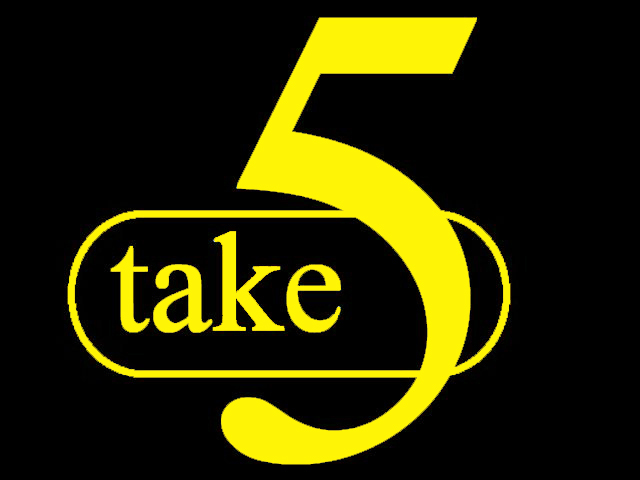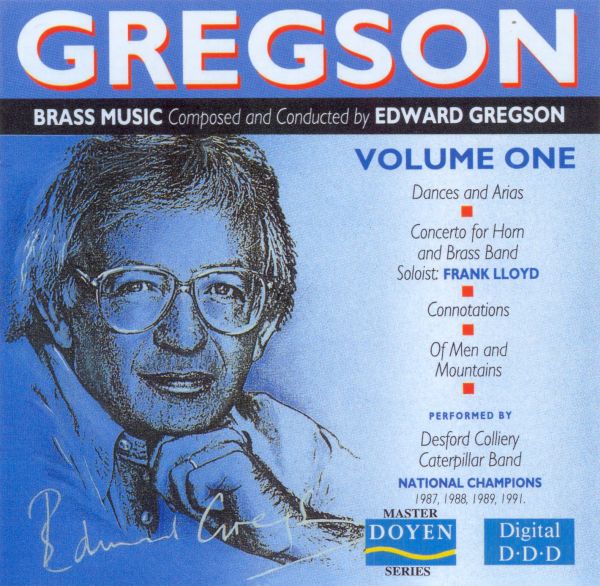
It’s hard to over-emphasis just what an impression ‘Connotations’ made on a somewhat jaded contesting public when it was first heard at the 1977 National Championships at the Royal Albert Hall.
Edward Gregson’s compositional output was not unknown by any means – work’s such ‘Essay’ (1971) and ‘The Plantagenets’ (1973) had gained widespread acclaim, yet they only really hinted at the explosive impact that was to be unveiled.
Fresh
However, those who heard ‘Variations on Laudate Dominum’ (1976) had been given a tantalising glimpse of the way in which he brought a fresh approach to the concept of ‘theme and variation’ writing – with ‘Connotations’ placing its first variant ahead of the majestic theme itself.

The title (he originally thought of calling it ‘Variations on a Fourth’ in a neat touch of due deference to Gilbert Vinter) is itself a clue to its inventive symphonic approach.
As Gregson wrote; “Connotations suggests more than one way of looking at something, an idea, and this is exactly what the piece is about.”
And with these five recordings (including two with the composer at the helm) you get to hear what he means – they are as diversely different as they are seemingly familiar.
As Gregson has wrote; “Connotations suggests more than one way of looking at something, an idea, and this is exactly what the piece is about.”
Curio
There are others we could have included; from the composer with the National Youth Band of Wales, to a bit of a curio on the Amos label from the 1988 Europeans in Lucerne – which featured not the winning set-work performance from eventual champions Eikanger Bjorsvik, but the one that came second from Black Dyke.
The Eikanger performance (recorded by Swiss Radio) later surfaced on a BBC ‘Bandstand’ recording in May 1988 alongside their rousing ‘Variations on an Enigma’ – although the BBC added somewhat to the musical slight by stating its was directed by a chap called Howard Small.
Lots of others worth seeking out too – from Manger at the 1981 Europeans to a host of solid shows from the Norwegian Nationals.
These though are our five to enjoy for a connotation of reasons.
Black Dyke Mills Band (1978)
Conductor: Major Peter Parkes
Triple Champions
RCA Recordings: PL 25143
This definitive Black Dyke studio recording, made soon after their Albert Hall victory (official live recordings came in 1979) was released the following year on an album that also included superb performances of ‘Diadem of Gold’, ‘Vivat Regina’ and ‘Harmonius Variations on a Theme of Handel’.
This is peak Parkes and peak Dyke of the first Queensbury vintage pressing - the band at the apex of its abilities under a conductor who was redefining levels of performance excellence.
This is peak Parkes and peak Dyke of the first Queensbury vintage pressing - the band at the apex of its abilities under a conductor who was redefining levels of performance excellence.
The time and space given to highlight the clarity of the writing is striking (superbly recorded at Huddersfield Town Hall by Brian and Ralph Couzens) as is the ease in which each variant segues into the other, building towards a glorious climax.
However, add a wonderful ensemble balance, tonality built on a warm, compact bass foundation and soloists of imposing stature, all allied to those beautifully judged shifts in pacing and musical nuance, and you are left with a performance of exquisite brilliance.
Black Dyke Mills Band (1980)
Conductor: Major Peter Parkes
Volcano
Chandos Recordings: BBR 1004
Even Black Dyke and Peter Parkes were not immune to being caught up in adrenaline-soaked excitement – as this live performance from the first European Championships in 1978 showed.
The band was to perform ‘Variations on a Ninth’ as their own-choice selection (and it is printed against their name in the programme), but it was changed at a late date; Peter Parkes admitting many years later, that he felt it also held too many potential solo pitfalls.
That said, this is playing that also treads dangerously on the edge at times - but what a thrilling experience it is in the process.
That said, this is playing that also treads dangerously on the edge at times - but what a thrilling experience it is in the process.
Pacy, driven, scratchy and uneven in places all the way to the end, it’s also absolutely riveting in its symphonic appreciation and delivery – a runaway juggernaut of unbridled uber-confidence that still left rivals in its wake.
It’s as different to the studio recording as you could imagine, but they still won the contest by ten points.
Brighouse & Rastrick (1987)
Conductor: Edward Gregson
The Music of Edward Gregson: Master Brass Series Volume Two
Triton Recordings: TRMB 78102
The first of two studio recordings we have chosen with the composer at the helm: Five years apart in time, fifty miles apart in approach and execution.
Brighouse & Rastrick was a somewhat capricious contesting band at the time. The James Watson era (1983-1986) had come to an end with just the two Area victories, but it did include a runner-up finish on the piece at the 1983 British Open.
How different that performance was to this one under Edward Gregson is impossible to exactly know – but you suspect they were somewhat different given Watson’s wonderfully visceral approach to meaty scores.
How different that performance was to this one under Edward Gregson is impossible to exactly know – but you suspect they were somewhat different given Watson’s wonderfully visceral approach to meaty scores.
This is a much more academic interpretive treatise (as are the other thoroughly engaging performances on the release – including ‘Dances & Arias’, ‘Laudate Dominum’ and Robert Childs on a sparkling ’Rhapsody for Euphonium’).
Gregson sympathetically allows the ensemble to find the flow and style of each variation without imposing too tight a leash on the dynamic safety levels. It still has a feral bite though, in a full-blooded performance of tonality and texture.
Desford Colliery Caterpillar Band (1992)
Conductor: Edward Gregson
Gregson: Brass Music Vol 1
Doyen Recordings: DOYCD017
Desford in 1992 was a band that had reached the very peak of its imposing musical power.
Four successive National titles under James Watson had been secured (they didn’t win another contest until 1995, although they very nearly made it five National victories on ‘New Jerusalem’ later in the year – coming runner-up with 98 points to Grimethorpe).
This is a quite remarkable performance at the heart of a quite remarkable recording (it also contains a stunning ‘Of Men and Mountains’, a lucidly brilliant ‘Dances & Arias’ and a fabulous ‘Concerto for French Horn and Brass Band’ given by Frank Lloyd).
Gregson’s pacing is within a breath or two of that with his earlier Brighouse recording, but the sound and textural palette he works from is on a completely different planet.
Gregson’s pacing is within a breath or two of that with his earlier Brighouse recording, but the sound and textural palette he works from is on a completely different planet.
Everything is so precisely defined – although there isn’t a merest hint of academic introspection and analysis – the layers of writing revealed with delineated detail and balance. The music flows seamlessly from one variation to the next – the majestic reiteration of the theme a construct of glorious musical certainty.
It is the nearest you will come to symphonic brass playing from a brass band, without the brass band losing its essential, integral identity in the process.
To enjoy: http://www.wobplay.com
Grimethorpe Colliery Band (2003)
Conductor: Elgar Howarth
The History of Brass Band Music - The Modern Era
Doyen Recordings: DOYCD163
Elgar Howarth’s ‘History of Brass Band Music’ series of recordings with Grimethorpe Colliery Band remains a remarkable achievement given the scope of its remit.
That he selected ‘Connotations’ for the last of the releases comes as no surprise – although his interpretation perhaps does.
Famously Grimethorpe was conducted by the American trumpet player Gerard Schwarz off the number 2 draw when the piece was first used at the 1977 National Finals (He was surprised that the band couldn’t ‘tune-up’ before performing on stage).
No need here in what is a tempered, sympathetic appraisal of the score by Howarth, and which places great store in his confidence in his players to deliver on his instructions.
No need here in what is a tempered, sympathetic appraisal of the score by Howarth, and which places great store in his confidence in his players to deliver on his instructions.
And they do in spades (they were enjoying a rich period of success under James Gourlay and Garry Cutt at the time).
There is no artifice or pointless stamp of interpretative individuality – just a musical acknowledgement of the art of craftsmanship (the timings are almost identical) from one outstanding musician to another.
To enjoy: http://www.wobplay.com


















